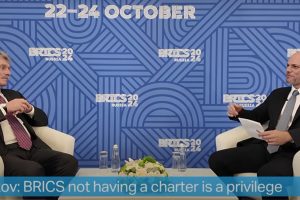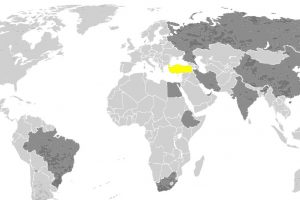In one short year Trump rule has brought the U.S. government apparatus to a standstill. I am not talking about the government shutdown. That is also part and parcel of the general trend in the U.S., but the misery runs far deeper than that.
You may read of the shortcomings of the Trump administration now everywhere, but the highest cost of his mismanagement (better yet, nonexistent management) is being paid by the people of the Middle East, from Yemen to Lebanon, from Jerusalem to Aleppo. The latest victims of his non-policy actions are the Syrian Kurds, half of who are living in exile either in Turkey or in Jordan.
Trump brought the Middle East his only visible action: The Orb Alliance. He has one and only one issue on his mind: The security of Israel. However, the policy he and his son-in-law designed to achieve worked contrary to their objectives. They created an Israel that is less secure than it was a year ago, and they threw the Kingdom of Saudi Arabia into an abyss that will swallow the United Arab Emirates (UAE) and Bahrain, too.
We have to accept that Obama’s similar absent-management had already left a legacy in the Middle East that would need strong political leadership to be corrected. Busy with creating an impression that would make the first black president look like a better statesman than his white predecessors, he left the management of the Bush wars in the hands of the generals. The U.S. military establishment unfortunately continued counting Turkey “not as dependable as it was” after the 2002 popular revolution in the country. Those military people who seem to have a binary logic as black and white could not discern the true colors of the new Turkey. A simple rejection of joining in the military coalition in Iraq in 2003 could not be the basis of a blueprint of new alliances in the Middle East. Especially true was the fact that Kurds in the area would not be the cornerstone of their new alliances. Pushing the Kurds in Iraq and later in Syria would make the danger of dismembering the four countries only more eminent, and the people there more hostile to the U.S. The lack of support for those four countries could not be compensated by those “Kurdish states” simply because a) it was almost impossible to create, b) so expensive to maintain, and c) those they think are Kurdish representatives are but PKK terrorists from Turkey.
A Kurdish state safe enough to pass Western oil through could not be ready in less than 10 years; you have to dismember Iraq and Syria first. And then you had to guarantee its safety and maintainability with civilian management and military structures. An arms cache worth of 4,000 trucks and 2,000 cargo planes would not do it. After the occupation, military governor Paul Bremer with the help of European scholars created a constitution to build a new polity in the ashes of Iraq, but as the whole world saw last summer, U.S. and Israeli support were not enough to help Masoud Barzani secede from the country.
The U.S. military still wants to go with this ill-fated, half-baked plan of theirs by creating the “continuation” entity in Syria: First a series of Kurdish cantons created by ethnic cleansing and forced population movements and later making them declare autonomy in the country. The purpose of this new entity will be to provide a first tier of security for Israel. The U.S. military has been disguising this plan under the rubric of fighting Daesh; however, last week they came up with the idea that Kurdish cantons will have an army titled the Border Security Force.
It was the biggest Freudian slip humanity has heard: Whose border? Turkey’s? Turks are capable of securing their borders, no thanks to the Pentagon. The civilians at the State Department noticed the boo-boo and tried to stop a major diplomatic embarrassment by creating a new tale: That force would be there to prevent the recreation of Daesh.
Turkey now has to put an end to those terrorist enclaves the U.S. military tries to pass off as Kurdish cantons, and the blood that could be shed will be on the hands of U.S. generals.
Source; Daily Sabah







Add Comment